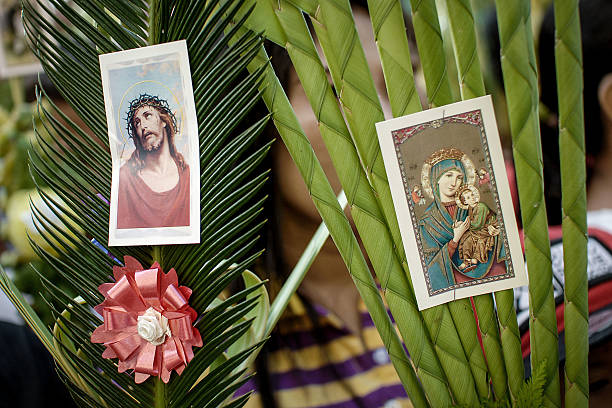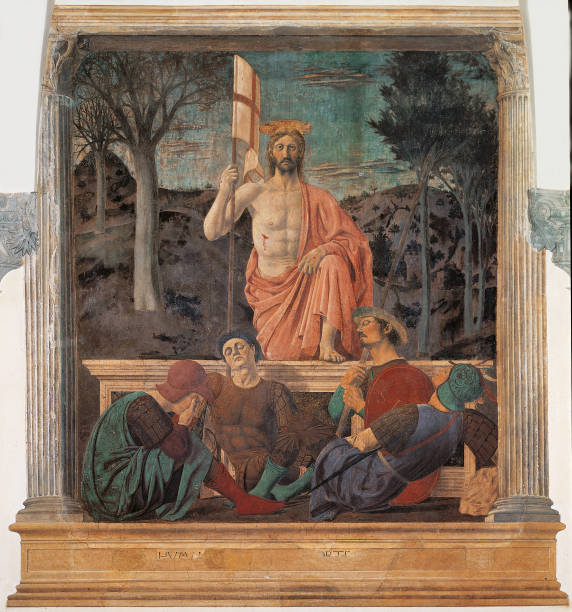The Christian life is a pilgrimage as long as we are on this earth.

Valentine’s Day is a little different this year as it falls on Ash Wednesday. However, unlike our Western brethren, those of us in the East are already in full swing with Lent. In the Eastern Christian tradition, the time of preparation begins well in advance of the Lenten season.
Sunday of the Publican and the Pharisee (Jan 21, 2024)
Sunday of the Publican and the Pharisee (January 21, 2024)
This preparation begins four Sundays in advance with the Sunday of the Publican and the Pharisee. On this Sunday, the story of Luke 18:9-14 is read, and that week, there is to be no fasting or abstinence, not even on Wednesday or Friday, as is the custom in the East. Instead, these days, we are to “be like tax collectors.” We do not have the piety of the Pharisees, but we do need public repentance.
This Sunday, we sing:
Let us flee from the pride of the Pharisee!
And learn humility from the tears of the public!
Let us call upon our Savior,
Have mercy on us.
Only kind!
We know that only through God can man fast, and so we should not be proud of fasting throughout the year. It is during this week and this time of not fasting that our total dependence on the saving power of the Cross begins to orient us in preparation for the Great Fast.
Sunday of the Prodigal Son (Jan 28)
The following Sunday Prodigal verses 11-32 are recited. In a sermon addressed to A TMA this Sunday by St. Ephrem the Syrian, we read:
This story is directed at us! Do you see how much the solution came from the son’s lack of embarrassment? Do you understand the goodness of the Father? You too, soul: don’t hesitate. Knock! do you need something? Wait at the door and you will get everything you need.
In the Eastern tradition, Lent is sometimes also called “the sea”. We are taking a trip, and the Sunday of the Prodigal Son takes us to the port. St. Ephrem the Syrian recognizes this and says:
Are you relaxing at the port? Do not pay attention to the waves, lest the coming storm suddenly push you into the depths of the sea. Then you will groan and say, I have come into the deep sea, and the storm has drowned me. I am tired of shouting and my throat is choked (Psalm 68:3-4). For the depth of the sea is actually Hades, according to the Lord, who said there is a great gulf between the righteous and sinners (Luke 16:26).
So, don’t push yourself into that abyss. Imitate the prodigal son. Leave the city which is in famine. Leave the suffering of pigs.
This Sunday, we remind ourselves that we have been “nourished by dark and abominable thoughts, when, like the Prodigal, [we] forsook You, O Savior, and went into a distant country.”
Meatfare Sunday (4 Feb)
Continuing this fantasy of traveling across the ocean. The following Sunday begins the process of unloading the cargo that might weigh on us, making the ship too heavy in the event of a storm. This Sunday is called the Sunday of the Last Judgment, also known as Meatfare Sunday. Just as the original meaning of carnival is carne vale, meatfare means “farewell meat”. Lent will not begin in full force, but this Sunday is the last day of eating meat, and the following week is dedicated to eating dairy products left in the house.
This Sunday, we are reminded that judgment is coming. But we are going to the cross. The faithful sing:
When you, O Lord, come to earth with glory,
all things will tremble
And the river of fire will flow before your judgment seat;
Books will be opened and hidden things will be revealed!
Then free me from that unquenchable fire,
And make me worthy to stand at your right hand, Righteous Judge!
Sailing across the River of Fire, the Sea of Lent, we journey toward the Judgment Seat.
Cheesefare Sunday (Feb. 11)
The last Sunday before Lent is called Forgiveness Sunday, or Cheesefare Sunday. And, just like we said goodbye to meat a week ago, today, we say goodbye to all dairy products until Easter. On this day, we remember the expulsion of Adam and Eve from Paradise and how we are heirs of death and corruption through original sin.
On this Sunday evening, a special service called Forgiveness Vespers is celebrated. The Dismissal at Vespers is an extremely beautiful service. At the end of Vespers, the congregation stands in line to venerate an icon and then bow before the priest and say, “Forgive me, a sinner.” To which the priest replied, “It is God who forgives. I’m sorry.” Then, again, the faithful answer, “God forgives.” After a back-and-forth with the priest, the faithful repeat this exact exchange with every member of the parish, young and old. Let’s repeat.

Source of getty images
Sea of lent:
This year, I highly recommend adopting this analogy of the “Sea of Lent,” regardless of one’s religious observance. The Christian life is a pilgrimage as long as we are on this earth. We are travelers, not of this world; This place is not our home. We cannot take any of our worldly belongings with us on the journey we are undertaking. Instead, we must give up everything, so that the journey can take place safely.
In Byzantine Orthodoxy at Pentecost, the faithful sing:
Sailing on a sea made turbulent by worldly cares, beset by your sins and thrown towards the monster who devours souls, like Jonah, I pray to you, O Christ: save me from this deadly abyss!
This psalm reflects our situation in this life, and is a microcosm of the Lent journey.
blog idea:-https://www.ncregister.com




